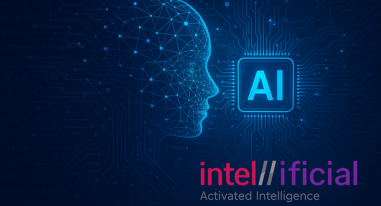04 June 2025

Introduction
Artificial Intelligence has progressed from an experimental concept to a critical component of numerous real-world applications, significantly influencing decision-making processes and individual experiences. Research indicates that 78% of organisations now employ AI across various domains, including chatbots, virtual assistants, fraud detection frameworks, and personalisation engines. Despite its extensive adoption, a substantial number of entities continue to rely on limiting QA practices tailored to deterministic systems. This dependency introduces considerable challenges and risks in addressing AI's inherently dynamic and probabilistic characteristics.
Why Current QA Doesn’t Work for AI Applications
Today’s QA relies on predictability. In conventional software systems, deterministic logic ensures that input A always results in output B. This allows for clear test cases, automated regression checks, and confident validation of functionality.
But AI doesn’t play by those rules.
AI systems, especially those using machine learning and generative models, are inherently probabilistic. Their output depends on various factors like
1. Quality and diversity of training data
2. Model architecture and learned weights
3. Prompt design and chaining
4. Parameters such as temperature, top-k sampling, and token limits
5. Real-time user behaviour and feedback
Due to these variables, the same input can produce different outputs at different times. A desirable result from an AI system once doesn’t guarantee consistent, safe, or fair outcomes in the future. The unique Quality Risks of AI span across functional accuracy, reliability, explainability, data Quality, bias & fairness, security, ethics, and compliance.
Traditional QA frameworks were never designed to address the ambiguity, variability, and ethical complexity inherent in AI systems. Testing AI extends beyond verifying fixed outputs; it involves evaluating behaviour, trustworthiness, and alignment with human values.
To ensure Quality in AI, organisations require a new approach that integrates data science, ethics, compliance, and continuous monitoring. It is not merely about identifying bugs but about developing AI systems that are safe, fair, reliable, and fit for their intended purpose.
What Modern AI QA Really Looks Like
At Intellificial, we believe AI Quality must be:
This marks a shift from a “pass/fail” mindset to a “fit-for-purpose” philosophy where Quality is measured by how well the AI system aligns with its intended purpose, user expectations, and ethical standards.
Intellificial has developed a comprehensive Quality Assurance (QA) framework that spans the entire AI lifecycle - from data validation to post-deployment monitoring.
Why Intellificial?
Intellificial is an award-winning boutique QA consulting firm HQ in Australia and recognised multiple times as CRN Fast 50, AFR Fast 100 and Financial Times APAC Fast 500. Over the 9+ years, we have supported 300+ engagements across QA advisory, transformation projects and automation.
At Intellificial, we don’t just test AI—we help you build it responsibly. Our team brings deep expertise in AI/ML, GenAI, and MLOps, combined with proven QA strategies and cutting-edge tools. We partner with leading platforms in AI governance, monitoring, and explainability to deliver a comprehensive, future-ready QA solution. Whether you're deploying a chatbot, a recommendation engine, or a large language model, we ensure your AI is not only high-performing but also secure, fair, and trustworthy.
Pathway to Intelligence Continuum: Evolving from Quality Assurance to Assured AI
Transforming Retail with AI-Assisted Software Testing
Activating the Benefits of AI in Your Business: The S3 Framework
Data Hygiene: The Critical Launchpad for AI in Retail
Activating AI Across Retail’s Lifecycle
Taking a Problem-Based and ROI-Focused Approach to Activating AI
Starting the AI Journey with AI-Assisted Software Testing: A Pathway to Activated Intelligence
How Activated Intelligence overcomes the “AI Silo of Death”